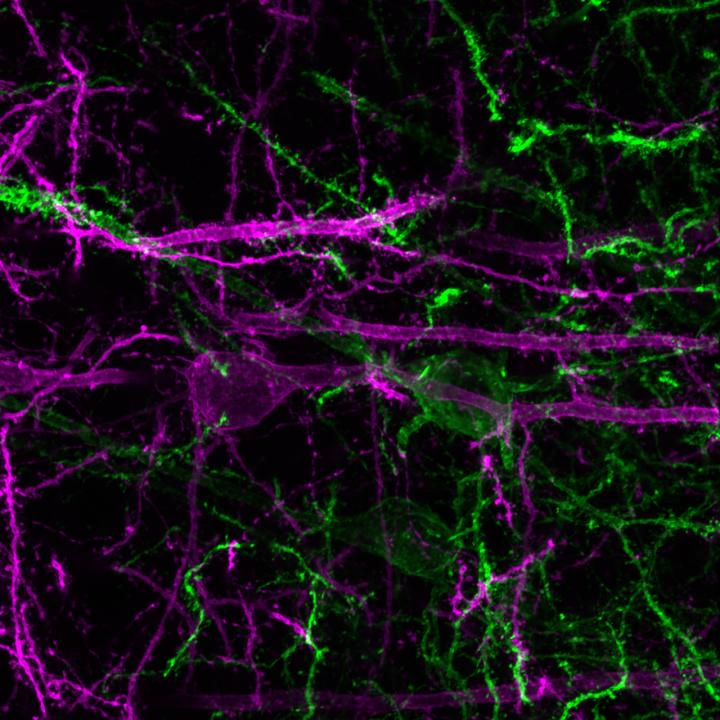Green: NAc-projecting prefrontal cortex neurons become active during the presentation of a reward-predictive cue, and this activity drives reward-seeking behavior. Purple: PVT-projecting prefrontal cortex neurons inhibited during reward-predictive cue. Credit: The Stuber Lab (UNC School of Medicine)
The prefrontal cortex, a large and recently evolved structure that wraps the front of the brain, has powerful “executive” control over behavior, particularly in humans. The details of how it exerts that control have been elusive, but UNC School of Medicine scientists, publishing today in Nature, have now uncovered some of those details, using sophisticated techniques for recording and controlling the activity of neurons in live mice.
